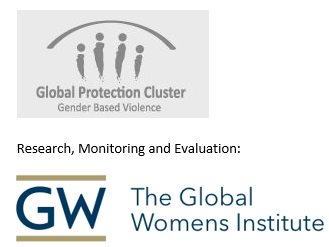- In addition to transitional justice mechanisms, survivors of conflict-related VAWG may in some instances access justice through international or internationalised justice mechanisms. As with other forms of justice, it is important for VAWG actors to be familiar with these types of justice mechanisms, even if they are not directly involved with them. Examples include:
1. The International Criminal Court the world's first permanent, international judicial body capable of bringing perpetrators to justice and providing redress to victims when states are unable or unwilling to do so. This represents a major stride for international justice. (For more information, see Amnesty International. 2005. “The International Criminal Court, Fact Sheet 7, Ensuring Justice for Women”, AI Index 40/006/2005, (12 April 2005).
See the Gender Report Cards of the International Criminal Court.
2. Ad hoc international criminal tribunals. In 1993 and 1994 respectively, the United Nations Security Council established the International Criminal Tribunal for the former Yugoslavia (ICTY) in response to large scale crimes committed in the Balkans region, and the International Criminal Tribunal for Rwanda (ICTR) in response to the genocide in Rwanda. Both tribunals were “international” in nature, meaning:
- they were established independent of the national justice systems in the affected countries;
- they have international judges, lawyers and other staff;
- they are funded by the international community;
- they operated outside the jurisdiction where the crimes were committed.
- Despite prosecuting a significant number of important cases particularly with regards to VAWG -- rape and other forms of sexual violence were recognized as war crimes and crimes against humanity -- both the ICTY and ICTR experienced problems in obtaining cooperation from states to arrest and surrender those charged with crimes. These are the only cases where this ad hoc international tribunal’s model has been used. (Amnesty International, Other international and internationalized courts).
3. Internationalised or hybrid courts. Like the ad hoc international criminal tribunals, internationalised or hybrid courts have been established with considerable UN involvement and share the same fundamental goal: to punish serious violations of international humanitarian law and human rights law committed by individuals. As a result of the punishment, the courts expect to prevent future violations in post-conflict societies (see Project on International Court and Tribunals). In these cases, the international community worked with the affected country to establish “internationalized” courts that mix (or “hybridize”) national and international systems.
- No standard model has been established but they are considered more likely than international courts/tribunals to have an impact in the affected country and may assist in developing national capacity within the justice sector. Examples include:
- Timor-Leste and Kosovo: the United Nations administration placed an internationalised criminal capacity within the domestic legal system (e.g., the international judges’ and prosecutors’ programme in Kosovo, and the Serious Crimes Unit and Special Panels in Timor-Leste).
- Special Court for Sierra Leone: the United Nations concluded an agreement with the government and created the Special Court, which sits outside of the domestic legal system and is governed by its own statute and rules of procedure and evidence.
- Extraordinary Chambers in the Courts of Cambodia: the United Nations concluded an agreement with the government and created “Extraordinary Chambers,” also governed by their own law and procedures (OHCHR, 2006).
- Also similar to the ad hoc international criminal tribunals, internationalised or hybrid courts are designated to address specific crimes within a specific timeframe and are mandated to prosecute individuals and rely on international cooperation, funding and judicial assistance. However, internationalized courts differ from international courts in a number of important respects:
- they can be part of the judiciary of a particular country or “grafted” on to the local judicial system
- they are composed of both international and local staff
- they apply a mix of international and national law. (See definition in Project on International Court and Tribunals)
4. Extraterritorial or universal jurisdiction. In some cases – for example the Pinochet indictment in the United Kingdom – prosecutions can take place within a third jurisdiction, under the principle of “universal jurisdiction”. Trials that are held according to this principle can lack a link to the victims and the country’s population and may therefore have a limited role in restoring faith in the justice/legal sector. However, it could provide an impetus for domestic criminal actions, as with the Pinochet case in Chile (OHCHR, 2006, pg. 29-32).
